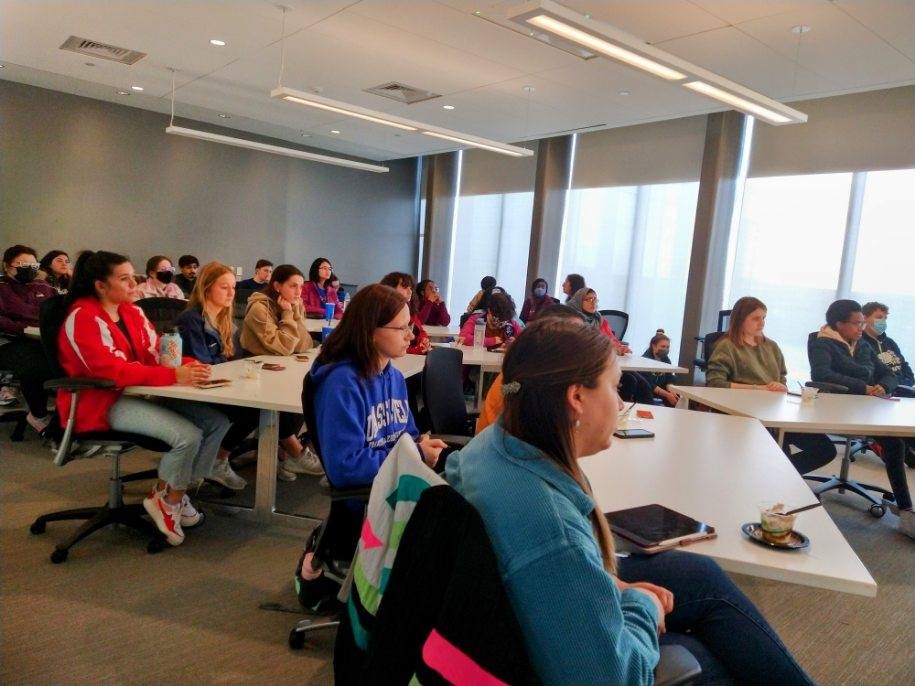
Lillie Zate
Connector Staff
Recently, UMass Lowell has introduced the Office of Student Life and Well-being, with a focus on educating students on the eight dimensions of well-being and incorporating health-promoting actions across campus culture, improving the lives of students and helping them in every aspect of their lives.
The eight dimensions of well-being that the office focuses on are emotional, environmental, financial, intellectual, occupational, physical, social and spiritual well-being.
“We are aiming to create a hub for all of the different wellness efforts in every dimension of wellness,” said Hannah Monbleau, assistant director of the Office of Student Life and Well-being. The office is trying to use holistic approaches to improve how students feel on campus in a way that can help them in the long run.
Across campus, many areas already have health initiatives going on, such as UMatter2. The Office of Student Health and Well-being wants to bring everything together and gather resources that can provide for students. As a result, students will be able to learn healthy habits and take away small changes that can improve and help them live healthy lives, in a more proactive and holistic way.
The Office of Student Life and Well-being hopes to reach their goals in several ways such as publishing resources, hosting seminars, lectures and workshops, partnering with other offices and programs on campus, having workshops during orientation for incoming freshmen.
UMass Lowell is not the first university to start something such as this – this is a part of a network of about 70 institutions across the country that promote health and well-being, which is continuing to grow every day, focusing on a well-being model to support students.
The office wants to break down barriers for students that might be preventing them from getting help and gaining the skills they need to meet all the eight dimensions of well-being.
“Other institutions are trying to find better ways to help their students; our office aims to find better strategies that are more proactive so students can have the tools they need to cope with the challenges they have…”
The Office of Student Life and Well-being is still a new organization and is growing every day, and they have UMass Lowell students’ interests as a top priority.
“We’re seeing that students have so many things they need help with, and we want to have all their resources for them, in one place,” Monbleau said. “We hope students can gain an understanding that the university cares for them, and we are here for them in all aspects of their lives.”
The Office is trying to find ways to track what students are struggling with and gather data to fine-tune the programs and resources they can offer students. They also want to become a place where students feel comfortable providing them with feedback.
“We’re hoping to make the lives of students a little easier and their experiences at UMass Lowell a lot better,” said Monbleau.
The office hopes to improve academic performance and the overall campus atmosphere by partnering up with other organizations on campus and providing resources.
Ruben Sanca, director of Student Life and Well-being added, “It’s important that once we can address the student body and get them the help they need, we can also help our staff and faculty. The more we help them, the better we can help our students,” he said.
The Office of Student Life and Well-being believes that the university needs to find ways where we can all work together.
“I think that in doing this and educating students, we will be learning more things ourselves,” said Monbleau.
Story appeared in The Connector student newspaper on March 29, 2022.
